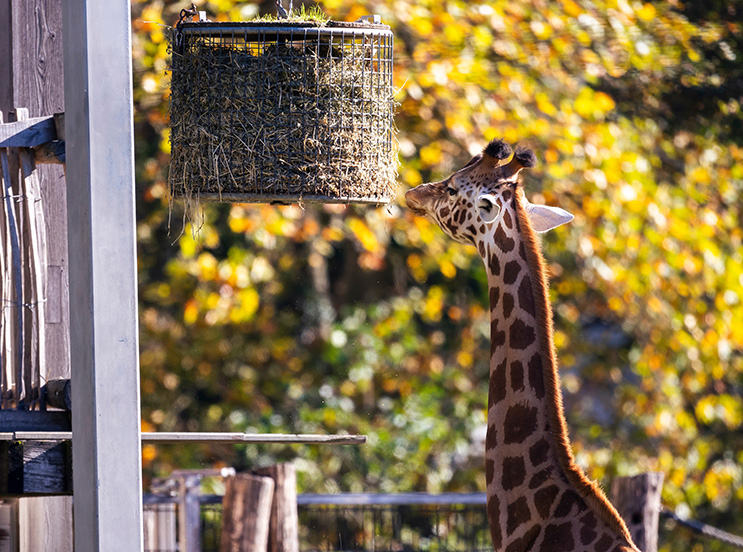
Zoo

Quality Hay and Haylage
As well as providing quality hay and haylage products to private yards, horse trainers and retail stockists we also supply Lucerne forage directly to zoos across the UK. Large browsers (such as black rhinoceros and giraffes) all graze on Alfalfa as part of their diet. We can supply our Alfalfa forage in small or large bales to suit your specific feeding needs.
Our experience supplying some of the best zoos in the UK means we can help you with your purchasing and feeding needs. We can advise on how much hay or haylage you need and which products would best suit the animals you have at your zoo or conservation centre.
Our Alfalfa products are grown and processed on our own farm from using the highest quality grass, just as it’s reaching maturity to ensure the freshest, most nutritious products possible. Please visit our Lucerne product page to see our range of Alfalfa products.
Get in touch with us for a quote, or to discuss your specific requirements.
Enquire Here
Legumes
Alfalfa (also known as Lucerne) is a legume, not a grass, and comes from the same family as clover and peas. While legumes can be grazed, they are more commonly used in conserved forms such as lucerne hay, haylage and chaffs (alfalfa chaff). In terms of nutrient provision, the calorie level of Alfalfa forage tends to be on a par with grass hay and haylage (7-11MJ/Kg) while the crude protein level in typically exceeds 14% on a dry matter basis (compared to grass hay/haylage between 4-12%). Legume forages are commonplace in the diets of many zoo animals either as the sole forage source or fed alongside grass hay in order to supplement protein and fibre intake.
Another notable difference between grass forage and legume forages is that legumes tend to be richer in minerals (calcium, zinc, copper and magnesium are all elevated) which needs to be accounted for when considering any concentrate/supplementary feed (in order to preserve optimum calcium to phosphorus ratios and ultimately a balanced ration).
Alfalfa forages also tend to be lower in starch and overall water-soluble carbohydrates (WSC/simple sugars) in comparison to grass hay.
Reviews
Our Customer Reviews






